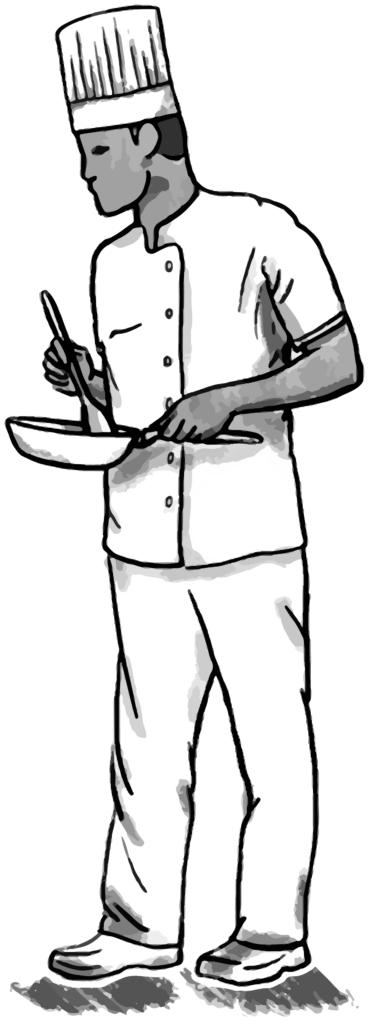
Toddlers (Ages 1-3): Exploring Through Sensory Play
Skills Developed
Language acquisition, basic counting, sensory exploration
Activity
Toddlers can help with washing fruits and vegetables, tearing lettuce for salads, or adding ingredients to a bowl. These activities are great for sensory exploration and can help toddlers expand their vocabulary as you name each ingredient together.
Recipe Example: Fruit Salad
– Ingredients: Bananas, strawberries, blueberries, and oranges
– Steps: Toddlers can help by placing pre-cut fruits into a bowl. Talk about the colors and textures, count the pieces, and enjoy a tasty, healthy treat together.
Preschoolers (Ages 4-5): Introducing Basic Cooking Skills
Skills Developed
Fine motor skills, early math concepts, following instructions
Activity
At this stage, children can start helping with mixing ingredients, spreading butter or jams, and using cookie cutters on dough. These activities help enhance fine motor skills and hand-eye coordination, while measuring ingredients introduces basic math concepts like counting, addition, and understanding volumes.
Recipe Example: Simple Pancakes
– Ingredients: 1 cup all-purpose flour, 1 tablespoon sugar, 2 teaspoons baking powder, a pinch of salt, 1 cup milk, 1 egg, 2 tablespoons melted butter
– Steps: Preschoolers can help by mixing the dry ingredients and then adding the wet ingredients. They can watch as you cook the pancakes and see the batter bubble and solidify, introducing basic science concepts.
School-Aged Children (6-8 Years): Enhancing Precision and Responsibility
Skills Developed
Reading for information, more complex math, basic science, social skills
Activity
Children can take on more responsibility by reading recipe steps, measuring more precisely, and even managing simpler cooking tasks under supervision like stirring on the stove. Cooking together can also become a cooperative project, improving their social skills and ability to work in a team.
Recipe Example: Veggie Pizza
– Ingredients: Pre-made pizza dough, tomato sauce, cheese, assorted sliced vegetables
– Steps: Kids can spread the sauce, sprinkle cheese, and arrange the vegetables on the dough. Discuss the chemical changes that occur when the pizza bakes and the social aspects of sharing food.
Tweens (Ages 9-12): Mastering Techniques and Exploring Science
Skills Developed
Advanced math skills, deeper understanding of science, developing patience and precision
Activity
Older children can handle more complex recipes that require multiple steps and greater precision. They can experiment with recipes to see how changing ingredients affects the outcome, linking directly to scientific methods.
Recipe Example: Homemade Bread
– Ingredients: Yeast, water, sugar, flour, salt, oil
– Steps: Kids can activate the yeast, knead the dough, and learn about the fermentation process. Baking bread from scratch involves biology (yeast growth), chemistry (heat reactions), and physics (rising dough), providing a comprehensive educational experience.
Cooking with children is about more than just preparing food. It’s a multifaceted educational activity that enhances academic skills, develops social interactions, and builds a foundation for healthy living. Each step in the kitchen is an opportunity to engage, explain, and encourage. No matter the age, kids can benefit from the hands-on learning that cooking provides, making it a perfect blend of fun and functionality.
